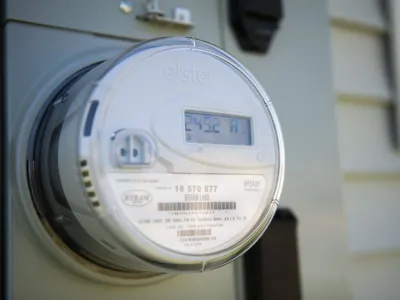PUC approves CUB petition for Open Data Access Standards

Published December 2, 2020
In a written order issued on November 20, the Minnesota Public Utilities Commission adopted CUB’s proposed standards for access to energy data. The standards will allow groups like CUB to find ways to reduce costs, reduce emissions, and make rates more fair.
In August 2019, CUB filed a petition with the Public Utilities Commission (PUC) to adopt Open Data Access Standards. The standards would allow third parties like CUB, universities, and others to access aggregated or anonymized customer energy use data.
This data can be used for research that can reduce waste, save consumers money, and cut emissions. It is absolutely necessary in order to understand the different ways that utility rates and programs affect different types of households, beyond the average customer. For example, using similar data, the Illinois CUB discovered that low-income households in the Chicago area generally pay more than their fair share for electricity and are actually subsidizing higher-income households -- and that low-income customers would see lower bills under time-of-use rates.
Smart meters (aka advanced metering infrastructure or AMI) that are being rolled out in Minnesota now will collect much more information about when customers use energy. These meters can enable time-of-use rates and new demand response programs to increase system efficiency and give customers more options to cut their bills.
A data access framework is necessary to put the meters to work in consumers’ interest. The meters can more than pay for themselves if they’re put to good use, but they’re not cheap — Xcel expects to spend on the order of a half a billion dollars on meters and associated technology — and it is utility customers who pay for the investments. Putting the data from these new meters to work is key to getting consumer and environmental benefits from the investments.
As new grid technologies are modernized across the country, many states are wrestling with how to make data available for research and energy program design. California, Illinois, and New York, for example, have adopted standards of the kind the Minnesota PUC is considering. New Hampshire, North Carolina, and others have proceedings ongoing.
The PUC will implement the Open Data Access Standards incrementally. First, the PUC will require utilities to share energy use data aggregated at the whole-building level for building owners and energy benchmarking purposes. Before implementing the remainder of the standards, related to anonymized data and aggregated data at broader scales, the PUC will request comments on a half dozen additional questions and will seek technical assistance from an outside expert such as the Regulatory Assistance Project.
You can see the complete standards in the PUC’s recent order.
CUB looks forward to working with utilities and other parties to refine the Open Data Access Standards so that they can be fully implemented soon.